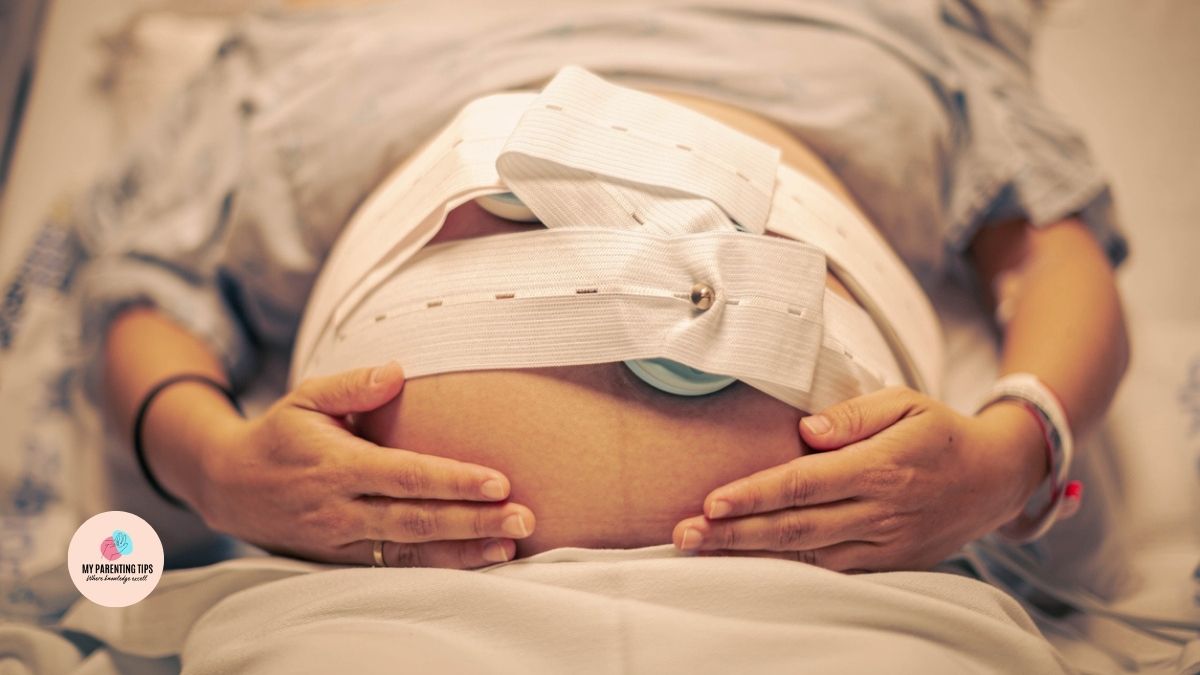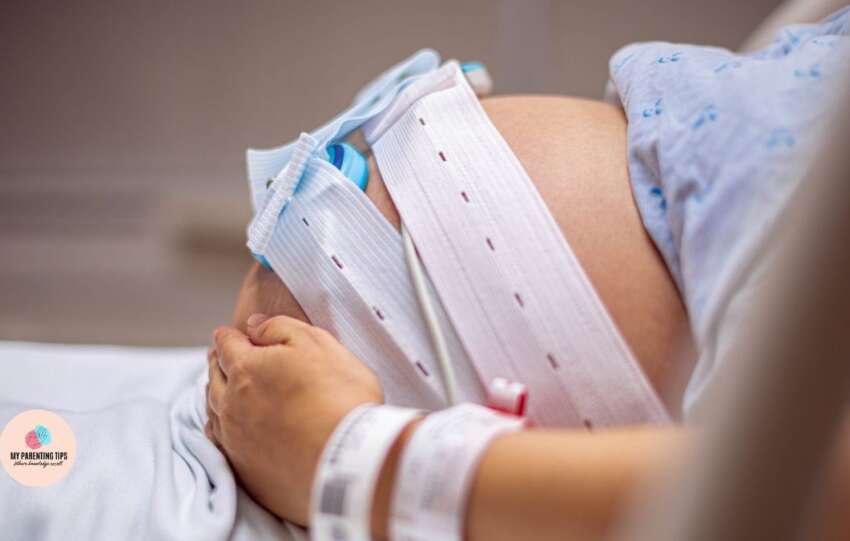9 Pregnancy Complications to Be Aware

“This content piece provides broad information and should not replace professional medical advice. See your healthcare professional always for individualized advice on health and pregnancy concerns.”
Though it can be an exciting and anticipatory period, pregnancy also calls for cautious consideration of health. Knowing possible Pregnancy Complications can keep you informed, assist you in identifying early symptoms, and, when necessary, guide your seeking of quick healthcare. Here are nine typical problems together with their symptoms and what to do should they develop.
Common Pregnancy Complications
Every pregnancy is different and not every woman suffers problems. Still, knowing what to look for helps one control any unanticipated medical issues.
1. One is Gestational Diabetes.
When blood sugar levels climb during pregnancy, gestational diabetes results. Usually occurring during the 24th week, it raises the likelihood of premature delivery or excessive birth weight.
- Symptoms: Routine glucose tests are especially crucial since many times there are no clear signs.
- Management: Essential are keeping a good diet, frequent exercise, and blood sugar level monitoring. Sometimes insulin or certain drugs could be needed.
One of the more under-control consequences with appropriate monitoring and treatment is gestational diabetes.
2. Hypertension: High Blood Pressure
Usually referred to as gestational hypertension that is, high blood pressure levels during the pregnancy period this disorder can affect the mother and the unborn child by upsetting placenta blood flow. Ignoring it can lead to pre-menstruation.
- Symptoms: Usually lacking, improper management of this can cause other problems.
- Management: Low-sodium diets, frequent blood pressure checks, and stress level management help to control hypertension. Should your doctor recommend medication, she may write prescriptions.
To avoid more severe pregnancy problems, hypertension needs constant observation.
3. Prebleclampsia
Usually, in the liver or kidneys, preeclampsia is a disorder defined by elevated blood pressure and indicators of organ damage. Usually occurring following the 20th week of pregnancy, it can cause major medical problems if managed incorrectly.
- Symptoms include extreme headaches, alterations in vision, upper abdominal pain, and unexpected hand or facial swelling.
- Management: Preeclampsia calls for right-away medical intervention. Common treatments are bed rest, blood pressure meds, and constant monitoring. Early delivery may be required in severe situations.
Attending prenatal appointments is quite important since early diagnosis and treatment can control preeclampsia.
4. Placenta Previa
Placenta previa makes the placenta either partially or cover the cervix. Other than problems during delivery, this medical condition may cause bleeding all through pregnancy.
- Symptoms: Second or third-trimester painless bleeding abound.
- Management: suggested include avoidance of physical activity, regular monitoring of symptoms, and occasionally bed rest. Should the placenta still block the cervix near delivery, a cesarean section could be required.
Usually found during normal ultrasonic tests, your healthcare practitioner will find placenta previa and enable time to arrange delivery properly.
5. Preterm Obstacles
Labor starting before 37 weeks of post pregnancy complications is known as preterm labor. Prematurely born babies could have problems with development or health.
- Symptoms: Regular contractions, lower back discomfort, pelvic pressure, and changes in vaginal discharge.
- Management: Should premature labor be discovered, your doctor could advise bed rest, drugs to postpone delivery, and steroids to support the lung development of the baby.
Should you show symptoms of preterm labor, see a doctor. Reacting fast will help your kid and you get better results.
6. Diseases
Untreated many diseases can endanger mother and child including urinary tract infections (UTIs), Group B Streptococcus (GBS), and bacterial vaginosis. These disorders can also raise the risk of early labor and cause different kinds of complications with pregnancy.
- Symptoms: Pain with urinating, fever, odd discharge, or itching.
- Management: Usually, infections are treated with antibiotics or other drugs as necessary.
Regular prenatal visits and following up on any unusual symptoms will help to identify infections early on and properly control them.
7. Anemia
A common disorder during pregnancy, anemia results from insufficient healthy red blood cells carrying oxygen to the tissues. Usually stemming from low iron levels, it can lead to weakness, tiredness, and vertigo.
- Symptoms: tiredness, weakness, pale complexion, vertigo.
- Management: Lean meat, legumes, and dark leafy greens are among the items advised in an iron-rich diet containing iron supplements.
With the correct diet and supplements your doctor can assist with anemia is treatable.
8. Ectonomic Pregnancy
Usually in a fallopian tube, ectopic pregnancy results from a fertilized egg placed outside the uterus. Ignorance about treatment for this disorder might make one dead.
- Symptoms: include minor vaginal bleeding, extreme shoulder or stomach aches, and vertigo.
- Management: Usually necessitating surgery, ectopic pregnancy calls for emergency medical treatment.
See a doctor right away if early in pregnancy you have unusual bleeding or extreme pain.
9. Depression Following Parturition
Though usually thought of as a post-pregnancy problem, postpartum depression can start during pregnancy. This mood condition can compromise both physical and emotional health, thus caring for your child and yourself becomes more difficult.
- Symptoms: include ongoing depression, lack of energy, hopelessness, or difficulties connecting with your child.
- Management: Therapy, support groups, and medication can help postpartum depression be managed. If you feel this way, you really should seek assistance.
Since mental health is equally as vital as physical health, early recognition of symptoms and support top priority. If you find yourself struggling, think about consulting a medical practitioner or close friend.
For better knowledge, investigate What are some common complications of pregnancy? to learn more about handling these disorders.
In summary
Pregnancy is a period of change and excitement mixed with knowledge of possible Difficulties in pregnancy might enable you to travel this road with knowledge and assurance. From gestational diabetes and preterm labor to postpartum depression, understanding what to watch for and getting medical help as required are vital steps in caring for both you and your child. Staying proactive with your health is the greatest approach to safely negotiating post-partum issues since early identification and quick treatment can make a difference.
Disclaimer
This article provides general information and is not a substitute for professional medical advice. Always consult your healthcare provider for personalized guidance regarding pregnancy barriers and health.



